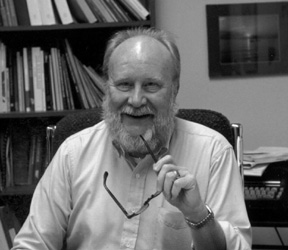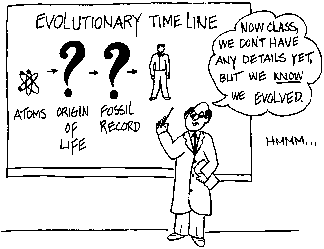I recently read Tom Horn’s article Are Church leaders abdicating the future of man to the Luciferian dead hand of the great planners and conditioners? I’m afraid they are not merely abdicating, some are actually advocating transhumanism!
Horn’s article Are Church leaders abdicating the future of man to the Luciferian dead hand of the great planners and conditioners? I’m afraid they are not merely abdicating, some are actually advocating transhumanism!
In my research through scholarly theological literature, I discovered a Lutheran based journal Dialog: A Journal of Theology which featured and article “The Animal that Aspires to be an Angel: The Challenge of Transhumanism” by Philip Hefner. In this article, Hefner actually advocates the transhumanist pursuit as a Christian duty. The author is an ordained pastor with the theologically liberal Evangelical Lutheran (ELCA) denomination and retired editor of Zygon: Journal of Religion and Science.[1] Accordingly, his writing exhibits a command of science. However, the article’s title referring to man as an animal compounded by his references to the Qur’an as a divine revelation[2] and Genesis as mythology[3] telegraph a freethinking worldview.
His position seems to be driven by a sincere desire to accommodate human progress and eliminate suffering, yet his conclusions are driven by questionable presuppositions. For instance, he holds an oxymoronic metaphysic of “religious naturalism.” He defines this peculiar term as “a set of beliefs and attitudes that there are religious aspects of this world which can be appreciated within a naturalistic framework.”[4] This sounds virtually identical to deism. He also suggests that God created man deficiently so that we might pursue this techno-enhancement. He asks rhetorically, “Has God created us to be dissatisfied with our birth nature and to seek to enhance it?”[5] I think the scriptural answer to that is an emphatic “No”! One wonders where denial of self in the pursuit of Christ fits into his theology (Lk. 9:23, Rom 12:1). A Christian worldview entails the acceptance of some suffering (2 Cor. 1:5). John the Baptist understood that, “He must increase, but I must decrease.” (Jn 3:30)
So how can a pastor maintain a straight face and advocate transhumanism?
To rationalize his endorsement, he proposes a caveat in the way of a distinction he deems “uppercase and lowercase” transhumanism. While it is somewhat arbitrary, the former entails enhancement to the extent of becoming post human (a new species), while the latter comprises a gray area which includes things like assistive medical technologies, cosmetic enhancement and life extension therapy. The author builds sympathy for the concept by offering his own pitiable medical history. The pursuit of healing is not the same as enhancement. It seems wrong not to advocate the elimination of debilitating conditions or assistance for the handicapped. However, the author’s emphasis on what he deems “lowercase” transhumanism avoids the more disturbing ramifications.
A major weakness in his argument is that although he acknowledges human sin, he doesn’t account for it adequately. He evades discussion of the potential for augmented human depravity via a post-human result. It seems that the majority of those promoting this endeavor are atheist/agnostic secular humanists.[6] If secular humanism is a religion, then transhumanism amounts to its eschatology. It is certainly not seen by them as co-creation with God. The implications are staggering. He identifies a central issue as, “the insistence that our original nature, received in conception and birth, is open to alteration at our own hands.”[7] Insistence is never a wise posture to take with God.
What about gratitude? How about, “I praise you, for I am fearfully and wonderfully made. Wonderful are your works; my soul knows it very well” (Ps. 139:14)? Nevertheless, Hefner contends that to object on theological grounds imposes an unwarranted normative anthropology. He views it as the next step in human evolution. His theological justification is that transhumanism is a natural out working of man’s status as a co-creator with God. In other words, it is theistic evolution through human agency. In his theological conclusions, he goes so far as to claim:
To discredit this aspect of human nature is in itself an anti-human move, in my opinion. In a theological perspective, we have been given this nature so that we can participate in God’s own work of making all things new and fulfilling the creation. To discredit our God-given nature is itself a rebellion against God. [8]
This is astounding. Hefner identifies important questions like “what constitutes alteration—appropriate or inappropriate—of human nature?” and “where is the boundary between healing and improvement?” Yet he does not attempt to answer them. I shudder to consider the potential social implications between the haves (posthumans) and the have-nots (humans). There is much at stake and the consequences have not been fully explored or even imagined. There is too much equivocation in his argumentation. Assistive technology seems justified but it is entirely another matter to argue for what amounts to techno-Darwinism. Christians are supposed to be conformed to the image of Christ (Rom. 8:29) not a transhuman Übermensch. It seems to me that what he advocates as co-creating with God is actually closer to the delusion of apotheosis (Gen 3:5).
[1] “Rev. Philip Hefner, M.Div., Ph.D. .” Metanexus Institute. 2010. http://www.metanexus.net/AcademicBoard.asp?45 (accessed 11 04, 2010).
[2]Hefner. The Animal that Aspires to be an Angel: The Challenge of Transhumanism.” Dialog: A Journal of Theology, 2009; 164.
[3] Hefner. “The Animal,” 163.
[4] PhilipHefner. “Zygon at 40: the times, they are a’changing—or not?” Zygon: Journal of Religion and Science. 2010. http://www.zygonjournal.org/40.html (accessed 11 04, 2010).
[5] Hefner. “The Animal, 162.
[6] Christopher Hook. “Transhumainism and Posthumanism.” In Encyclopedia of Bioethics (3rd ed.), by Stephen G. Post, 2517-2520. New York: MacMillan, 2007.
[7] Philip Hefner. ” The Animal,” 161.
[8] Hefner. “The Animal,” 166.







